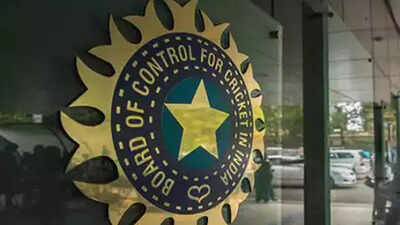Sports Ministry amends National Sports Governance Bill in big relief to BCCI – here’s how | More sports News

The Sports Ministry has amended the RTI-related provision in the National Sports Governance Bill, which was tabled in the Lok Sabha on July 23. The amendment specifies that only sports organisations receiving government grants and assistance will fall under RTI’s purview, providing relief to the BCCI, which has historically opposed RTI inclusion due to its financial independence from government funding.The original bill’s clause 15 (2) stated that “a recognised sports organisation shall be considered as a public authority under the Right to Information (RTI) Act, 2005 with respect to the exercise of its functions, duties and powers under this Act.”Go Beyond The Boundary with our YouTube channel. SUBSCRIBE NOW!The amended clause now provides clarity on what constitutes a public authority. A source close to the development explained: “The amended clause defines public authority as an entity that is relying on government funds or assistance. With this amendment, there is a clear definition of what is a public authority.”The source further elaborated: “If this had not been done, it would have been a grey area that could have led to the bill getting held up or being challenged in court. So anything that involves public money will come under RTI. It defines the specifics.”The source also noted: “And even if a national sports body is not taking government funds, it can still be questioned if government assistance of any kind is involved in the conduct or operation of its events. Because government assistance is not merely funds, it is also about infrastructure.”The BCCI will need to register as a National Sports Federation once the bill becomes law, as cricket has been included in the 2028 Olympics in T20 format.The bill introduces a National Sports Board to establish accountability measures. All National Sports Federations must obtain NSB recognition to receive central government funding.A significant feature is the National Sports Tribunal, which will have civil court powers to resolve disputes about selection and election matters involving federations and athletes. Appeals against the Tribunal’s decisions can only be made to the Supreme Court.The bill relaxes age restrictions for administrators, allowing those between 70 and 75 years to contest elections if permitted by international bodies’ regulations. This differs from the current national sports code’s 70-year age limit.The bill’s objectives state: “…as a part of the preparatory activities for the bidding of Summer Olympic Games 2036, it is imperative that the sports governance landscape undergoes a positive transformation to bring better outcomes, sporting excellence and aids in improved performance in major international competitions.”The National Sports Board will be led by a chairperson, with members appointed by the central government from “amongst persons of ability, integrity and standing.”A search-cum-selection committee will recommend appointments. This committee will include the Cabinet Secretary or Sports Secretary as chairperson, the Sports Authority of India’s Director General, two experienced sports administrators, and one distinguished sportsperson with a Dronacharya, Khel Ratna, or Arjuna award.The NSB can de-recognise national bodies that fail to conduct Executive Committee elections or commit serious election irregularities.Organisations that don’t publish annual audited accounts or misuse public funds may face NSB action, though consultation with the relevant global body is required before such decisions.The RTI Act defines public authorities as institutions created by Parliament or State Legislature, including government-owned, controlled, or substantially financed bodies. The amended sports bill aligns with this definition.





